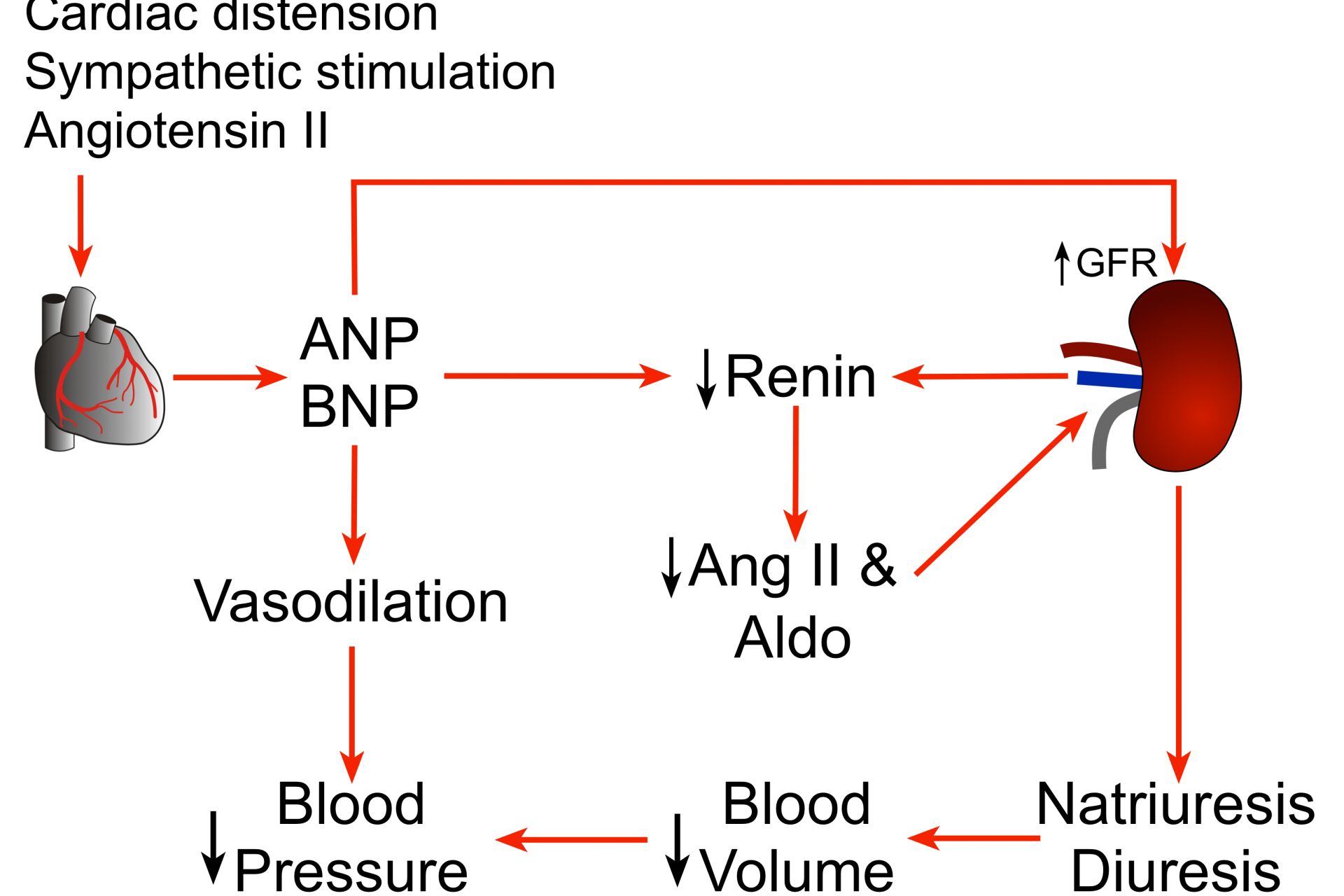
Natriuretic peptides are fascinating molecules that play a crucial role in maintaining your body's balance. Ever wondered how your heart and kidneys communicate to regulate blood pressure and fluid levels? Natriuretic peptides are the messengers in this vital conversation. These peptides, including ANP, BNP, and CNP, help your body get rid of excess salt and water, keeping everything in check. They are like tiny superheroes fighting against high blood pressure and heart failure. Understanding these peptides can give you insights into how your body works and why maintaining a healthy lifestyle is so important. Ready to dive into 27 intriguing facts about natriuretic peptides? Let's get started!
What are Natriuretic Peptides?
Natriuretic peptides are hormones that play a crucial role in regulating blood pressure and fluid balance in the body. They are produced by the heart and other tissues in response to changes in blood volume and pressure. Let's dive into some fascinating facts about these vital molecules.
-
Natriuretic peptides help the body get rid of excess sodium and water, which lowers blood pressure.
-
There are three main types: Atrial Natriuretic Peptide (ANP), Brain Natriuretic Peptide (BNP), and C-type Natriuretic Peptide (CNP).
-
ANP is primarily produced in the atria of the heart, while BNP is produced in the ventricles.
-
CNP is mainly found in the brain and blood vessels, not the heart.
How Do Natriuretic Peptides Work?
These hormones have a complex mechanism of action that involves multiple organs and systems. Understanding how they work can shed light on their importance in maintaining cardiovascular health.
-
They bind to specific receptors on the surface of cells, triggering a series of biochemical reactions.
-
This binding leads to the production of cyclic guanosine monophosphate (cGMP), a molecule that helps relax blood vessels.
-
Relaxed blood vessels mean lower blood pressure and improved blood flow.
-
They also inhibit the release of renin and aldosterone, hormones that increase blood pressure.
Clinical Significance of Natriuretic Peptides
Natriuretic peptides are not just important for normal bodily functions; they also have significant clinical applications. They are used in diagnosing and managing various medical conditions.
-
Elevated levels of BNP are often seen in patients with heart failure.
-
Measuring BNP levels can help doctors diagnose heart failure and assess its severity.
-
ANP and BNP levels can also be used to monitor the effectiveness of treatment for heart failure.
-
Low levels of these peptides may indicate dehydration or other conditions where blood volume is reduced.
Natriuretic Peptides in Research
Ongoing research continues to uncover new roles and potential therapeutic uses for natriuretic peptides. Scientists are exploring various avenues to harness their benefits.
-
Researchers are investigating the use of synthetic natriuretic peptides as treatments for heart failure.
-
Studies are also looking into their potential role in treating hypertension.
-
There is evidence that they may help protect against kidney damage in certain conditions.
-
Some research suggests they could be used to treat obesity by promoting fat breakdown.
Interesting Facts About Natriuretic Peptides
Beyond their medical and physiological roles, natriuretic peptides have some intriguing characteristics and historical tidbits.
-
The discovery of ANP in the early 1980s was a breakthrough in cardiovascular research.
-
BNP was initially discovered in pig brains, which is why it's called "Brain" Natriuretic Peptide.
-
Despite its name, BNP is more commonly associated with the heart than the brain.
-
CNP, the least studied of the three, is gaining attention for its potential role in bone growth and repair.
Natriuretic Peptides and Lifestyle
Lifestyle factors can influence the levels and effectiveness of natriuretic peptides in the body. Understanding these can help in managing health better.
-
Regular exercise can increase the levels of ANP and BNP, improving cardiovascular health.
-
A diet low in sodium can enhance the effectiveness of these peptides in regulating blood pressure.
-
Chronic stress may reduce the levels of natriuretic peptides, potentially leading to higher blood pressure.
-
Adequate hydration is essential for maintaining optimal levels of these hormones.
Future Directions in Natriuretic Peptide Research
The future holds exciting possibilities for natriuretic peptide research. Scientists are continually exploring new ways to utilize these hormones for better health outcomes.
-
Gene therapy is being explored as a way to boost the production of natriuretic peptides in patients with heart failure.
-
Personalized medicine approaches are being developed to tailor treatments based on individual natriuretic peptide levels.
-
Advances in biotechnology may soon allow for the creation of more effective synthetic natriuretic peptides for therapeutic use.
Final Thoughts on Natriuretic Peptides
Natriuretic peptides play a crucial role in maintaining heart health and regulating blood pressure. These hormones, produced by the heart, help the body eliminate excess sodium and water, reducing blood volume and easing the workload on the heart. Elevated levels of natriuretic peptides can indicate heart failure or other cardiovascular issues, making them valuable biomarkers for diagnosis and treatment.
Understanding how these peptides function can lead to better management of heart conditions and overall cardiovascular health. Researchers continue to explore their potential in developing new therapies and improving existing treatments. By keeping an eye on natriuretic peptide levels, healthcare providers can offer more personalized care and potentially improve patient outcomes.
Incorporating knowledge about natriuretic peptides into your health routine can empower you to make informed decisions and take proactive steps toward a healthier heart. Stay informed, stay healthy.
Was this page helpful?
Our commitment to delivering trustworthy and engaging content is at the heart of what we do. Each fact on our site is contributed by real users like you, bringing a wealth of diverse insights and information. To ensure the highest standards of accuracy and reliability, our dedicated editors meticulously review each submission. This process guarantees that the facts we share are not only fascinating but also credible. Trust in our commitment to quality and authenticity as you explore and learn with us.
